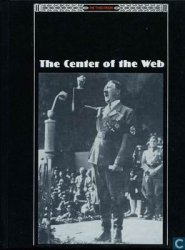During the summer of 1794 several superficially unrelated events brought the partisan conflicts of the period to a peak. For the better part of two years the government had been unable to collect Hamilton’s whiskey tax in the West. In Pennsylvania, mobs had burned the homes of revenue agents, and several men had been killed. Late in July, 7,000 “rebels” converged on Pittsburgh, threatening to set fire to the town. They were turned away by the sight of federal artillery and the liberal dispensation of whiskey by the frightened inhabitants.
Early in August President Washington was determined “to go to every length that the Constitution and laws would permit” to enforce the law. He mustered an enormous army of nearly
13,000 militiamen. This had the desired effect; when the troops arrived in western Pennsylvania, rebels were nowhere to be seen. The expected Whiskey Rebellion simply did not happen. Good sense had triumphed. Moderates in the region (not everyone, after all, was a distiller) agreed that even unpopular laws should be obeyed.
More important, perhaps, than the militia in pacifying the Pennsylvania frontier was another event that occurred while that army was being mobilized. This was the Battle of Fallen Timbers in Ohio near present-day Toledo, where the regular army troops of Major General “Mad Anthony” Wayne won a decisive victory over the Indians. Wayne’s victory opened the way for the settlement of the region. Some 2,000 of the whiskey tax rebels simply pulled up stakes and headed for Ohio after the effort to avoid the excise collapsed.




 World History
World History









